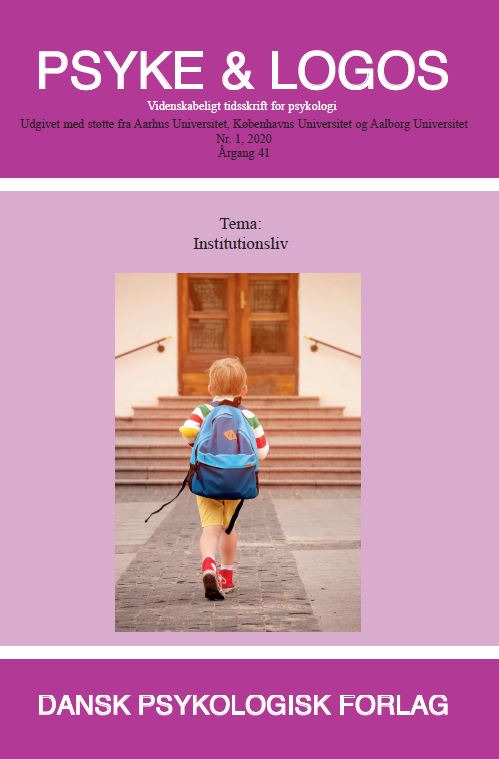Resonance and Unconscious Intelligence in Institutionalised Human Encounters
– Dynamic Supramodal Processes in Professionals’ and Children’s encounters and development
DOI:
https://doi.org/10.7146/pl.v41i1.121516Keywords:
resonance, unconscious intelligence, supramodal processes, intersubjective, intersubjective encounters, self-regulationAbstract
This article focuses on how we can theoretically conceptualise and understand unconscious dynamics and unconscious intelligence with implications for the development and well-being of participants in institutionalised human practices.
An integrative theory approach outlines how unconscious intelligence and embodied memory creatively contribute to self-regulation and self-organisation of the system of consciousness. The system of consciousness covers a variety of fields and levels of complexity, including intra-subjective, as well as inter-subjective fields of consciousness. The system of consciousness is accordingly associated with sociocultural forms of consciousness and systems of meaning. The theory outlines an integrative merge of a phenomenology approach to the dynamic unconscious with a system network-psychology of consciousness as an emerging cybernetic network of information. Two examples of consciousness dynamics with implications in institutionalised lives illustrate the theory, and the discussion includes ethical considerations and questions considering education and therapy.
Downloads
Published
How to Cite
Issue
Section
License
Ophavsret er tidsskriftets og forfatternes. Det er gældende praksis, at artikler publiceret i Psyke & Logos, som efterfølgende oversættes til andet sprog, af forfatteren frit kan publiceres i internationale tidsskrifter, dog således at det ved reference fremgår, at den oversatte artikel har et forlæg i en dansksproget version i Psyke & Logos. Artikler kan frit deles og linkes til på forsknings- og undervisningsnetværk (så som Blackboard). Link foretrækkes, fordi det giver oplysning om brug af tidsskriftets artikler.




